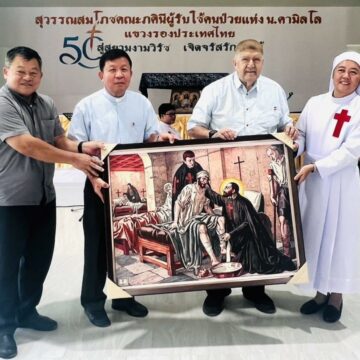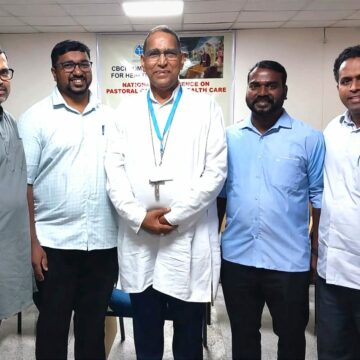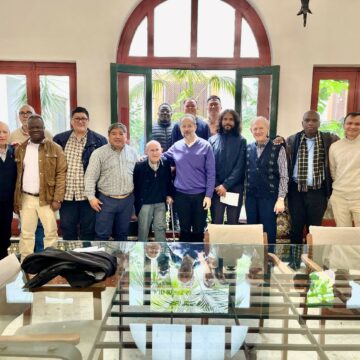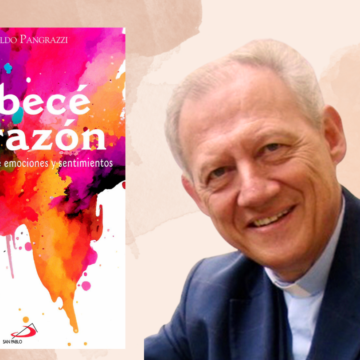CONSECRATED LIFE: Love for Poverty, Need for Managementand the “Temptation of Power”
Angel Fernandez Artime, sdb
I come before you, dear brothers, with the desire of sharing a simple reflection drawn from our own daily life-experience as religious. We are well-informed – to some extent at least – about the life of our Congregations and Institutes of Apostolic Life.
I have been asked to do this service, and I do it willingly. However, I am aware that what I wish and am able to offer is far from being an academic presentation, since that is outside my scope. My sole intention is to offer some avenues for our reflection and dialogue.
All of us and our religious confreres have made the vow of poverty by professing the evangelical counsels. And I have no doubt that, generally speaking, we live a simple and moderate life in our individual capacity. Most times the problems we face are not on the personal but on the institutional level. And this is the framework within which I intend to develop the following points:
- The Pope’s invitation to love and live poverty
- The Church Fathers and their call to a radical outlook in the use of goods
- The much-needed responsible management of economic goods.
- The hidden temptation of power
LOVE FOR POVERTY, a witness to the newness of Christ
It was on the occasion of the celebration of the International Symposium on the “Management of Ecclesiastical Goods of the Institutes of Consecrated Life and Societies of Apostolic Life, for the Service of Humanity and the Mission of the Church” (March 8, 2014) that Pope Francis addressed a clear and emphatic call to religious men and women, reminding them that consecrated persons have always been “a prophetic voice and living witness to the newness which is Christ, and that they have to conform themselves to the One who made himself poor so that we might become rich by his poverty.” The Pope went on to say that “this loving poverty is solidarity, sharing and charity and is expressed in moderation, in the quest for justice and in contentment with a simple life.”
I have personally put some words in dark type to highlight not only the keywords but also the attitudes that must accompany our life. For us, to live poverty cannot be solely a matter of thrift or control of oneself or others. This has little to do with the essence of personal freedom with regard to economic goods and with our donating and sharing them. Basic personal and institutional attitudes such as solidarity, sharing, charity, moderation, justice and contentment with a simple life must really find a place in our documents, our personal and institutional ‘examination of conscience’, our ‘accountability to others’, etc.
To keep these things in our mind and heart makes us more free with respect to “the material idols which blur the authentic meaning of life” (says the Pope in this same message). And along with this, he adds another forceful call. A call to ensure that our poverty is not theoretical but in consonance and communion with the poorest of this world. A theoretical poverty is of no use; what is needed is a poverty that we learn by touching the flesh of the poor Christ in the humble, in the poor, in the sick, in children.” The Pope invites us to continue to be for the Church and for the world “the outposts of care for all of the poor and for all material, moral and spiritual poverty, and examples in overcoming every form of egoism through the logic of the Gospel which teaches us to trust in the Providence of God.”















Camillians on Facebook
Camillians on Twitter
Camillians on Instagram